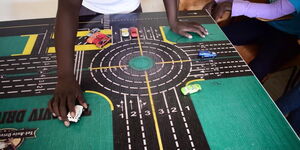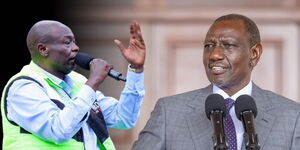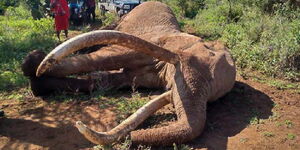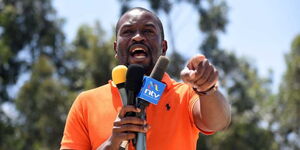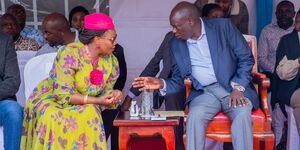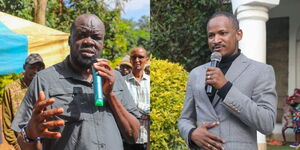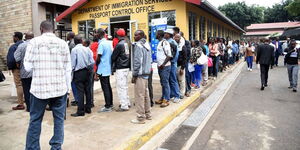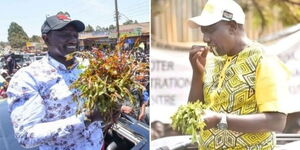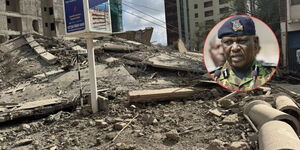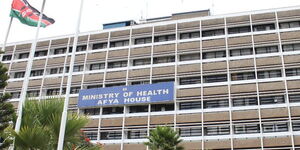President Uhuru Kenyatta's announcement of dusk till dawn curfew (7 p.m to 5 a.m), starting Friday, March 27, is the first time a Kenyan president has made such an order since the infamous 1982 attempted coup.
In the early hours of August 1, 1982, Kenyans woke up to a coup attempt by junior officers of the Kenya Air Force against the government of then President Daniel arap Moi.
The chaos lasted less than 12 hours, with one of the key masterminds, Senior Private Hezekiah Ochuka Rabala, becoming Kenya’s 'president' for less than 6 hours.
The national radio at the time Voice of Kenya (VoK), while at gunpoint, announced that the military coup was due to the state of the economy among other reasons.
A curfew was then declared by the perpetrators and the citizens were ordered to stay indoors, while all border crossing points were closed.
The national broadcaster went on to advise all the Members of Parliament to hide inside their homes for their own safety, while the National Police were ordered to behave like any other civilians.
According to the narration of several survivors of the coup, the grand plan was to seize control of the VOK, the Central Bank of Kenya (to protect people’s money), and blowing up State House Nairobi.
However, quick action from Moi's intelligence officers enabled him to crush the rebellion going on to issue a nation-wide curfew of his own
Following the attempted overthrow of the government, Nanyuki and Nairobi residents were ordered to stay indoors between 6 p.m and 7 a.m until further notice.
The move greatly hampered industry, as movement was strictly prohibited, except for militants loyal to the president and providers of essential services, specifically medics.
Areas previously teeming with people going about their everyday business quickly turned into 'ghost towns', as Moi's officers combed through the country in pursuit of any perpetrators that may have slipped through the cracks.
Moi also issued drastic orders in order to enable his soldiers to regain control of the Nanyuki Airbase.
On August 7, 1982, Moi convened an emergency parliamentary session and announced an ease on the curfew hours.
The lockdown in Nairobi and Nanyuki was reduced to 8 hours, from 9 p.m until 5 a.m, replacing the previous directive that lasted for five days.
There were cases of massive looting during this period, especially targeting Indian-owned shops in downtown Nairobi, with over 2000 people arrested and sentenced to 18 months in prison.
However, things soon returned to normal, with president Moi going on to announce that all Kenyan airbases were under his control.
President Uhuru's orders, on the other hand, were taken to curtail the spread of the deadly coronavirus, however, several Kenyans have poked holes in his directive, arguing that the virus was not limited to being passed on during night hours.
Others have argued that the president's latest directive is but a teaser of what is to come, with many predicting a total lockdown as the next logical step to combat the Covid-19 epidemic.

